|
Word Gems
exploring self-realization, sacred personhood, and full humanity
Editor's 1-Minute Essay:
Suicide, Transition, Dying
return to "Suicide" main-page
Robert E. Neale, The Art of Dying: “Suicide is an attack on society - an attack on its omnipotence, on its denial of death, and on its own despair.”

Strictly speaking, the term "afterlife" is a misnomer. There is no "after"-life, as such, but only one, seamless life. We are exactly the same person, in our thoughts and sense of being, in the next moment after transition as before - and so shall we remain, until we take steps to improve ourselves, that is, to grow into an expanded state of awareness.
There is no death - not for one's consciousness, only for the mortal shell.
But there's another reason why "afterlife" is misleading. It all sounds so monolithic, as if there were but one etherial Disneyland-in-the-sky to visit. Much better, far more descriptive and accurate than "afterlife," is "The Multi-Plane Universe."
The Multi-Plane Universe
While there is no such thing as a "multiverse" (see discussion on the "quantum" page), there are an infinite number of "classrooms," worlds, dimensions, levels, planes, "spheres," to visit, experience, and investigate. Some of these will be of our own making.
We might choose to live in some of these, as we discover them, or create them, or we could opt to stay in Summerland proper, put down roots there, use it as "home oasis," from which to explore the myriad wonders of unbounded reality. This idea of a permanent home-base is what I intend to do.
Edward C. Randall, the Buffalo attorney who, for 22 years, worked with medium Emily French, received and recorded thousands of direct-voice communications from the Spirit World. One of the most provocative messages from the other side: "Vain would be the effort to speak of things for which Earth has no language or parallel. Some few conditions of this better land of ours I may describe in human speech; more [however], we are not allowed to give, lest it tempt many to end Earth life, with work undone."
The next phase of our eternal lives is far too wonderful, they say, to allow for complete revelation while in the limiting flesh, as we might be unduly tempted to "cut class and go fishing" before our appointed time.
but what happens if we do 'cut class' and don't 'hand in our homework'
Well, truancy is not to be encouraged, but it's hardly an unforgiveable capital offense. I'd like to address this question of suicide, as we all know families for whom this has become a reality; and people worry about this in terms of the well-being of their lost loved-ones.
Allow me to share what I've learned from, in my opinion, the best teachers in the Astral Realms, their testimony on the subject of suicide.
Let me quickly offer the bottom line: there's nothing to worry about, no lasting damage will be done, it will all be worked out and fine for everyone involved.
Big Religion will try to scare you with pontifications: 'suicide is the greatest sin' - but that's just religious fake-news from those who frown upon you drifting away from their clutches
When I was in law school a long time ago I recall reading about English Common Law having condemned suicide as a capital offense.
This sounds very strange - "So, what are you going to do, kill me twice?"
The powers-that-be don't like suicide at all. They detest the idea of serfs getting uppity and taking it into their insubordinate heads to wander off the plantation any high-old-time they might feel like it.
To counteract this treason, The Crown, at one point in history, would actually power-grab the property, an opportunity for wealth confiscation, of the one now enjoying escape from manumission.
Robert E. Neale, The Art of Dying: “Suicide is an attack on society - an attack on its omnipotence, on its denial of death, and on its own despair.”
Not to be outdone by the rival authority, Despotic Ecclesia also got into the act of condemning any self-emancipation with its dire pronouncements of "suicide is the greatest of all sins." If you kill yourself, they foamed, you'll go directly hell, and won't even pass 'go.'
But, as we've established, there is no such thing as "sin" and there is no "hell" -- not the way they describe it.
Holy Mother Cult's fear-mongering has been picked up by a good deal of popular sentiment, predicting great trouble for those choosing the early departure. This is more bunk.
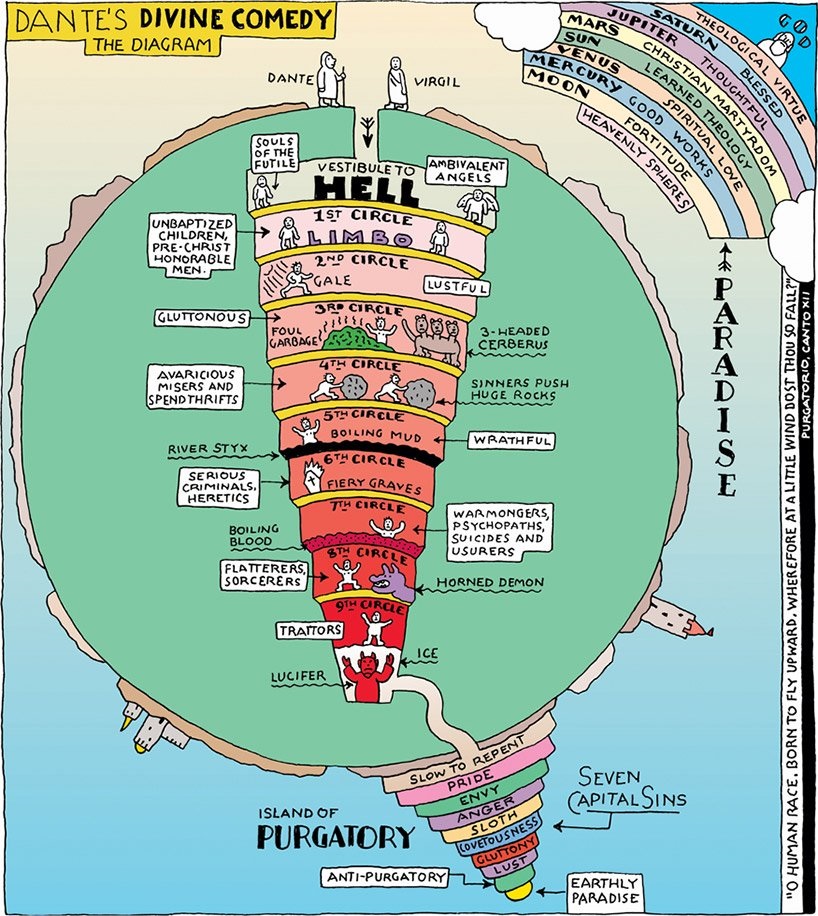
Dante's "Divine Comedy" helped to popularize the error that suicides are more evil than most. See the above "7th circle of hell." In Dante's taxonomy, suicides are listed right between psychopaths and loan officers. Now we know why it's called a comedy.
there is no special category of trouble for suicides, it doesn't work that way
The soldier who purposefully falls on a grenade to save his buddies (for example, see the movie Act Of Valor), has committed suicide. But we do not follow after him with petty little warnings of "you'll pay for that!" Instead, most of us would call him a hero, and rightfully so.
the core issue becomes this: do we retain title-deed to our own lives, with the right to decide our destiny and the timetable for its unfolding, or are we serfs and pawns, living life at the pleasure of some external authority
These alternative views are expressed in two quotations:
Arthur Schopenhauer: “They tell us that suicide is the greatest piece of cowardice... that suicide is wrong; when it is quite obvious that there is nothing in this world to which every man has a more unassailable title than to his own life and person.”
Munia Khan: “Souls are flowers, only God has the right to pluck them. But those who commit suicide: their souls are the rotten blossoms of the devil's garden.”
Analogies, per se, are proof for nothing; we are not flowers but souls "made in the image." (Nor is there a "devil," but I digress.) What does this mean?
the moral specific-gravity
Our thoughts and actions, be they loving or selfish, create in our spirits light or darkness, increasing or lowering the vibrational essence of our inner persons. See extensive discussion of this principle on the page devoted to "the mandated solitude and introspection."
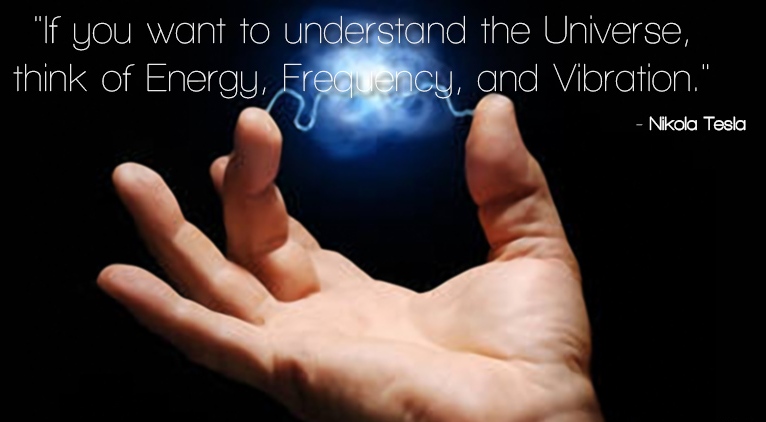
Our initial "port-of-entry" to the Astral Realms is determined by this inner vibrational essence. It's just a matter of "afterlife physics," no magic to it. We go to where we find affinity and similarity. For better or worse, we'll be with people like ourselves.
One's inner vibrational energies can be changed, improved, but not in a moment. If we end up in an unpleasant place, it'll take some effort to advance ourselves. We should not expect otherwise: if a person has spent a lifetime living selfishly, there will be no "instant make-over." The good news, however, is that everyone can grow, be set on a better path, and make a wonderful life.
what happens to the soldier who falls on a grenade, sacrificing himself for others
Anybody who does that, in a hot-moment decision, is likely to be a good person, and she or he'll have no trouble finding one's way to Summerland.
But, let's say, hypothetically, that the soldier had been a very selfish person, taking advantage of everyone. In that final moment of seeing the grenade, however, he decides, for once in his blighted life, to do the right thing. Will this "death-bed repentance" avail for him a free-pass to Summerland?
Well, it's a great start and first step to a "make over," but he won't be able to instantly "raise his inner vibrations" with a single act, even an heroic one. He'll likely, temporarily, end up in a dark place on the other side.
However, given his new desire for living authentically, assuming he'd like to string this along into a series of good deeds, and if he asks for help, Spirit Guides could take him to a better environment the very same day; maybe not Summerland quite yet, but a safe "half-way house" where he can get some counseling, make plans for success, and solidify good intention into settled state of mind. And so, he'll be fine, in due time.
how does it work for the typical suicide who leaves in a state of despair
There is no special category of trouble for suicides.
just as there is no 'deathbed repentance,' so too there is no 'deathbed condemnation'
One of the great power-and-control deceptions of Big Religion concerns the "deathbed repentance." The Blackrobes will tell you that if you die under the right magic hand-sign, the correct doctrinal magic words, sprinkled and dabbed with the right magic water and oil, offered by the right church, then -- to upend Jesus' plain teaching -- you will not have to "pay the last penny" but will escape lily-white, allowing one to sneak into heaven through the back door, albeit under the disapproving eye of Saint Peter. Well, it was a close call, but you made it, no penalty flags falling. But - is this the way it happens?
We have discussed elsewhere this monstrous travesty, this cynical and outrageous prevarication and empty pageantry, this "fake news" caricature of reality. There is absolutely no truth in it.
There is no "deathbed repentance" but, instead, each person, alone, must bear the responsibility, the very last "penny's worth," of what he or she has made of oneself.
Editor's note: For those who believe they can live as they egoically please, and then skate into heaven "on a technicality" because "you had a good church lawyer," because a BlackRobe said the right magic words over you, and because God is some kind robotic and venal bureaucrat, then you will find yourself headed for more than a big shock. My own father, via psychic-medium, contacted me from the afterlife and told me how disoriented, confused, and downcast he was over there because nothing there was like the way they said it would be. He had the Nice Young Man at Church to thank for his discombobulation. Those who frantically cling to the hope that a church’s “last rites” will save them from an angry god actually make themselves worse in the process. How does this happen? Fear, mind-numbing fear, lowers one’s “internal vibrations” and increases “darkness” in one’s spirit. So-called “last rites” fan the flames of terror and send one to the next dimension in a more damaged state of mind. The Nice Young Man might be thanked for this, too.
But, just as there is no "deathbed repentance," so too, happily, there is no "deathbed condemnation." And this is good news to families who worry about a loved one who's taken his or her own life. What does all this mean?
Prior to the final act of self-inflicted departure, if one has lived, overall, a positively oriented life - it doesn't need to be perfect, no one's life is perfect (that's not going to hapen) - then, for the suicide, any mental confusion and negative energy at the end will not frustrate and erase all the good that one has done to that point. In such case, he or she will transition to a good world.
Of course, if one's life has been substantially morally-directed otherwise, then there will be darkness upon crossing over - but not because of a single rash act of despair and fear at the end, but as the culmination of all that one has thought and done in one's life. In other words, the mental darkness will have been self-created, a result of many years of low-living. The act of suicide, per se, will have had no effect, a virtual non-event. Why? -- because some or a lot of people are living so close to the edge in this world, they're already counted among the woeful dead.
By "counted among the dead" I mean the "spiritually dead," those who live a selfish life with little regard for metaphysical issues. These have committed "suicide" in a different way and are the ones to be concerned about.
Abu the Egyptian, 3500 years on the other side, speaks on the subject of suicide
My friend James Webster, archival custodian of the Rick Rickard tapes, sent to me a recording of something Abu (meaning, "father" or "teacher") said on the subject of suicide. I found it to be the wisest, most balanced, treatment of this issue I've ever come across.
Allow me to paraphrase the sum-and-substance of what Abu said:
Everyone who crosses over is dealt with in a loving way. No one is despised or left behind. Regarding suicides, it should be said that this manner of entering the etheric world is not recommended; although, here we need to be careful in making any judgments, as circumstances will vary greatly. Many people on Earth worry that the suicide will have an especially difficult time. This will not necessarily be the case. In fact, in certain situations, it may be for the best. I do not want to be misunderstood. We go to the Earth to learn certain lessons, and the general rule is that we should not cut short our learning time; however, that said, some people suffer so much on the Earth that to stay there any longer could actually make them worse and set them back; in these situations, it could very well be better for that person to take himself to the next world. But what about a case in which the suicide may not altogether offer 'just cause' for departure? Even here, while he or she may suffer for a time due to a short-sighted, egocentric act - if that act represents a pattern of selfishness in one's entire life - even so, with the passage of some or many years, it will all come out the same. The infraction will have been worked through, the 'payment,' so to speak, to one's higher self, will have been made, and that person will live just as happy a life as anyone else. Case closed.
I offer Abu's words as encouragement to the families who have suffered the untimely loss of a loved one. Quite frankly, there are lots of bad things far, far worse than suicide that people do to themselves. By "worse" I mean things that ruin one's character, poison one's spirit, creating mental darkness that will send one to detention in the Dark Realms.
I suggest you review my article, "Levels Of Consciousness," especially the lowest rungs on the ladder -- "the utter shamelessness," fear, guilt, and the rest.
For examples of some of the worst, see what's happening in the political world today. Some of these frothing political devotees of Dear Leader might create so much darkness in their spirits, that they could writhe in a rat-cellar for decades or hundreds of years. This condition or fate is probably far, far worse than what might confront the average suicide who takes himself out due to despair. See the many reports from the other side on the "sensibility" page.
|
ultimate fail-safe: the Masada principle
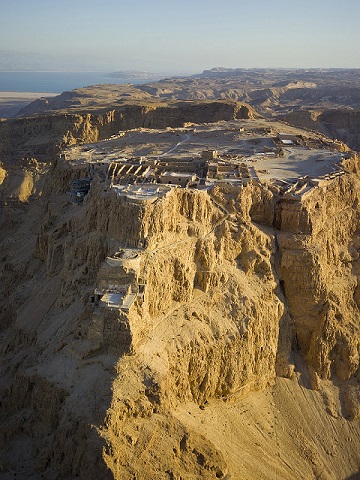
Wikipedia:
Masada ("fortress") is an ancient fortification in the Southern District of Israel situated on top of an isolated rock plateau... It is located on the eastern edge of the Judaean Desert, overlooking the Dead Sea…
Almost all historical information about Masada comes from the first-century Jewish Roman historian Josephus…
In 66 CE, a group of Jewish rebels, the Sicarii, overcame the Roman garrison of Masada... After the destruction of the Second Temple in 70 CE, additional members of the Sicarii fled Jerusalem and settled on the mountaintop after slaughtering the Roman garrison…
In 73 CE, the Roman governor of Iudaea, Lucius Flavius Silva, headed the Roman legion X Fretensis and laid siege to [and] surrounded Masada, built a circumvallation wall and then a siege ramp against the western face of the plateau…
According to Josephus, when Roman troops entered the fortress, they discovered that its defenders had set all the buildings but the food storerooms ablaze and committed mass suicide or killed each other, 960 men, women, and children in total...
The Jewish freedom-fighters failed to oust the Romans from their homeland. Many of the Jews hoped for this, and even some of the men following Jesus supported this spirit of independence.
The Masada colony well understood that, if the assailing Roman legions broke through defense lines, virtually all of them would be killed, tortured, or sold as slaves. Rather than accept this calamitous fate, a spirit of “live free or die” prompted them to choose death by their own hands.
Most of us do not face a choice of such dire strait. However, I believe it’s part of a well crafted life to think about possibilities, remote as they may be, at the moment.
I say “at the moment” because the world is changing, and not so much for the better. Even so, I do not believe, despite many problems on the world scene, that we will be confronted with a “Masada” ultimatum. This acknowledged, I am also surprised just how quickly society has deteriorated in the last ten or even five years. I would not have suspected, even a few years ago, that the country would be facing today’s challenges. The country we knew no longer exists. We are no longer a free people, not to the degree that we enjoyed.
Totalitarianism is on the rise throughout the world. Forces of radical cultism gain the upper hand. Globalism is praised, nationalism is vilified. Patriotic traditions are trampled, an attempt to separate us from heritage and root. Personal freedoms suffer abridgment at an alarming rate, under the banner of safety and security. Big tech keeps all of us under constant surveillance, tagged and flagged. Elections are rigged, banana-republic style. Criminals, with big sloppy grins, rule over us. We’ve now entered a period in our history similar to that of Augustus’ “Principate.” Forms and shadows of the old Republic were maintained, so as not to alarm the people; but, the only real power lay in the hands of an elitist ruling cabal. After a time, even this polite ruse was dispensed with.
How bad will it get? Will one special-interest group gain the hegemony, forcing its will upon others? It’s hard to believe that it could come to that, and I’m not expecting it, but sometimes it feels like it’s Germany in 1932. Educated Germans could not accept that their well-ordered society would soon feel a stomping jackboot in its face. Germany was the most cultured, the most sophisticated, the most well educated society, arguably, since the fifth century BC, the glory days of ancient Greece. If it could happen to Germany, it could happen here, in our dumbed-down society.
The totalitarians in our midst sense “blood in the water,” they feel that total control is finally within reach, and once this dynamic takes hold, history teaches, it never goes back to the way it was – not without violence in the streets. I say this, and yet, I still have trouble believing that things could get worse.
But, let’s talk about worst-case scenario. If one group gains complete political power over others, if persecution begins, of the most sordid kind, then things could change even more, and quickly. It’s already happening on a verbal level: the incessant lies, the non-stop propaganda, the demonizing of rivals. Censorship is common now. All news is slanted and edited. Only one approved narrative is allowed by the “powers that be,” with other opinions condemned and ridiculed. And I think there’s merit to the assessment of historian Paul Johnson:
"When we are dealing with concepts like freedom and equality, it is essential to use words accurately and in good faith... beware of those who seek to win an argument at the expense of the language. For the fact that they do is proof positive that their argument is false, and proof presumptive that they know it is. A man who deliberately inflicts violence on the language will almost certainly inflict violence on human beings if he acquires the power. Those who treasure the meaning of words will treasure truth, and those who bend words to their purposes are very likely in pursuit of anti-social ones."
And, of course, George Orwell dedicated his writings to exposing the power-grasping ways of the totalitarians, in all their guises.


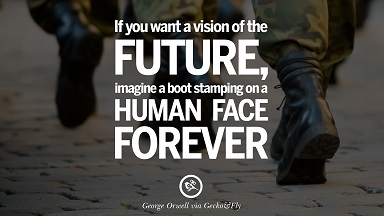
This page is devoted to a discussion of the various aspects of suicide. It's an unpleasant subject. Taking one’s own life, as a general rule, is not advisable. We came here for a purpose, and we should live out our normal course of years. However, there are times in history when other factors come into play. In the 1930s, when the trucks would arrive in German neighborhoods, rounding up the undesirables…
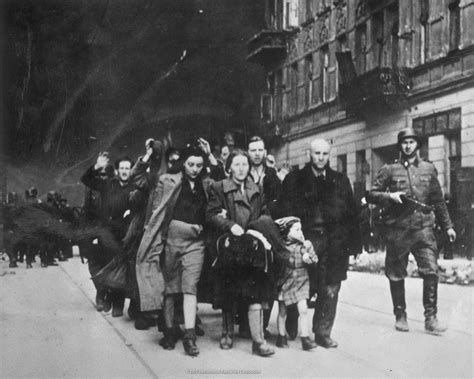


… what should they have done? Allow themselves to be taken as sheep to slaughter? There should have been resistance, there should have been a fight - as Churchill said, in such situations, "take one with you"; but, sometimes it's not possible to fight back.
My point here is not to indulge in the cheap sensational. Could any of this happen again? I think it could. I’m not expecting it to happen - but others have said this, as well, and were mistaken.
The “Masada principle” is sometimes the only way out. We always retain title deed to our own lives: we belong to ourselves and not to some Dear Leader's rapacious agenda. No one can deprive us of this most basic human freedom. There is a time to refuse to be hauled away like cattle or garbage.
99%+ of the chronicle of history features the "jackboot in the face," great oppression, slavery, the "midnight banging on the door," a dearth of human rights, with pompous elites ruling. This is common fare in world history - and why should we presume that we will not be "returning to normal"?
Especially during times of great darkness and duress, we should think about these things because doing so, while, in one sense, we find it very unsettling, a resolve to "live free or die," as our freedom-loving forebears taught, can be a solace and refuge. There's a limit to what despotic others can do to an oppressed people, if we insist on a limit. We ever reserve to ourselves the possibility of a final display of personal independence, one that cannot be bullied or beaten out of us. In truth, no matter how dark things become, we always play a hand of four aces; we never relinquish control, we always get the last word - concerning the fate of our own persons.
The "Masada principle" ensures this elemental personal authority, what Adrian called the "universal sovereignty of the individual, which cannot be abrogated or delegated away." If necessary to implement, this last defiant expression of dignity, of what it means to be human, surmounts power-mongering stratagems of every generalissimo arrayed against freedom-loving peoples. Moreover, it offers a sense of peace, as we realize, if things were to proceed from bad to much worse, we always reserve and hold closely, answerable to our own sacred selves alone, the ultimate fail-safe option and response.

Editor’s note: Let us also be mindful of “the real world” which is but one missed heartbeat away. That coming world, our eternal home, is built upon the rights of the individual, not the hive, collective, or group, and certainly not that of an elitist cabal, posturing as benefactor. These arrogant and oppressive monsters-of-the-heart-and-soul are headed toward a sewer-pit rat cellar, from which they are unlikely to emerge, possibly, for centuries.
The following point, too, should be noted well, for, as one passes from the mortal shell, the tables might be turned, with once-victims now raging against smirking potentates. This is not often done, and should not be done, but it can happen. I'll explain what my research reveals HERE.
|
|
Editor’s note:
During a reading with a competent psychic-medium, one who was accessing information from Spirit Guides, I was discussing this topic of “transition, dying, and suicide.” If it were possible to enter the congenial atmosphere of Summerland sooner than “scheduled,” would that be a good thing?
The answer I received was much in line with Spirit-Guide Abu’s response (above). It is tempting to desire Summerland on an expedited timetable, but, if we cross over before our time, we would experience certain regrets. Yes, we might escape this difficult world and avail ourselves of the benefits of Summerland, but this enjoyment would not be as full-bodied as it might have been.
If we leave undone certain works of service, areas of contribution to the greater good, we will regret this omission. But, even more, to cut short one’s time here, but for very good reason; to remove oneself from difficult lessons of this “classroom”; is to reduce our future capacity to enjoy life and love as we might have done.
This issue of “reducing one's capacity” to experience joy seems to be linked to enduring one's sufferings while on planet Earth. We don’t really want to do anything that might hinder our future joy; as, later, we’d end up regretting “cutting class.”
'You are getting out, too?'
I am reminded just now of the extremely moving account by Dr. Frankl in the camps who adopted a philosophy of “not pushing to the head of the line” for an extra scrap of bread and similar competitive activity. Instead, he accepted what appeared to be less advantageous positioning, even though it may have appeared to be fraught with danger and death. Read Frankl’s assessment here.
On one occasion, Dr. Frankl was making what he thought were his last rounds in the typhus hut among dying patients. After this, he and another were planning to escape from the camp. However, as he came to an old man, ministering to his needs, the elderly patient, reading Frankl’s demeanor and maybe his thoughts, calmly asserted, “You are getting out, too?” This jarred Frankl, causing him to change his mind about the escape plan; instead, he decided to remain with his service to the dying men. As it happened, however, it did not work out well for those who attempted to break out of the prison.
I thought about this haunting query, “You are getting out, too?” Would someone say this to us, if we left undone our own “assigned charitable duties”? - if we pushed to the head of the exit line, in favor of escaping the unpleasantness of this world, before our time.
|
Editor’s note: The best treatment, in my opinion, concerning the morality of self-termination, whether one possesses the right to manage one’s own life and death, is to be found in the 1894 essay “Is Suicide A Sin?” by attorney-philosopher Robert G. Ingersoll. In a series of letters, he publicly debated the issue with society notables. Ingersoll was brilliant and considered to be a luminary of his generation. Footnote: Having crossed over, in 1903 Ingersoll, via channeling medium, communicated from the other side regarding his experiences there:
"The first sensation usually experienced by spirits after shaking off the outer covering is an indescribable feeling of freedom. Hope springs into life so bright and fair that many have told me they felt like shouting with joy... I was then led by my angel guide … and was soon surrounded by many men and women whom I had known on earth, but whom I supposed were dead, as I had seen them put under the ground and well covered to keep them from escaping. For the first time I became frightened, when one man relieved me very much by saying: ‘Do not be alarmed, Ingersoll, you are in your heavenly home, a place you never expected to see.' Then one after another grasped my hand so kindly and lovingly that I began to feel happier than I had ever felt before…”
|
August Goforth: Self-Exiting - No Judgment, Only Adjustment
"While I rested, someone in Spirit began sharing insight about the issues of self-exiting.
"I recognized this Risen One as the person who had once been my great-grandfather on Earth...
Here now is [his] communication, who voyaged to my terrestrial dimension to aid me further in my quest to understand self-exiting."
READ MORE
|
|
Editor's last word:
British Pastor Dr. Leslie Weatherhead commented that people have no misgivings about deciding whether to bring life into this world; we do not fret about disrupting cosmic order with, "Only God has the right to decide if a baby should be born"; so too, he thinks, we've been given authority to curtail our time on this planet. Both entrance and exit are up to us, he posits.
I agree, and I think we do have the right to decide when to leave this world; that said, it should be for a good reason. We came here to learn important lessons, ones best learned in the difficult Earth environment and harder to grasp in Summerland where everything's wonderful, and so it's best not to "cut class." And yet, as Solomon instructs, there is a time to die.
For myself, I've already decided that I will never be one of those old people who cannot care for himself, force-fed 20 pills each morning, flattered with toneless expression about how good I look today, propped up, half-alive, in a seniors' storage warehouse; further, I will not be accepting what I consider to be invasive surgeries such as heart operations or cancer treatments or the like. I have no interest in extending my mortal time in this world beyond that which I deem to be reasonable - reasonable as per my own definition. There is a time to die. When is that time? I will decide that; rather, it should not be a choice, as such, but a spiritual knowing.
My health, at age 70+, is alright; but, at this stage of the journey, things can happen quickly. I'm good with that. I know too much about how things work in Summerland to delay my "real life" longer than necessary. As I stated on the "Intuition" page, the more one travels down the path of seeking wisdom and truth, the more out-of-step one becomes with secular society, the more foreign and strange it all seems.
Brought to mind just now are statements by Spirit Guides who, in the course of service-duty, are required to visit the Earth. How they dislike such dispatching. They say to re-enter this world's dark energy is like wading into a sewer-pit spewing thick clouds of noxious fumes. And yet the immature speak of how much they want to come back to this world - this "world which is another world's hell" - not that they'll have that option. The way some foolish people have it, they can hardly wait to have all this fun again. But just count me out.
I will never return to this planet, but for possible ad hoc service-missions. I wouldn't be caught dead here. My tour of terra-duty is fast approaching curtain-fall, and I look forward to my new life with great anticipation. If I could honorably justify it, I would gladly leave tonight.
Restatement:
What is the real problem with self-exiting? As stated, there could be situations which could allow for this: terminal illness with great suffering, or imminent threat of violence from Dear Leader; maybe some others.
Apart from these, however, what is real issue with suicide? I think it’s like this:
There is an underlying Great Intelligence who gave us life. We were sent to planet Earth, a one-time trip, to learn certain lessons. We would do well to align ourselves with the purposes of Source. This is our way forward. To do otherwise makes no sense; there's no way to win at that.
To fight Universal Wisdom is pretty dumb, really. It’s tantamount to saying “I know better.” We don’t know better. We don’t see all the reasons, right now, why we had to come here to this hell-hole war zone world. This is why "surrender and acceptance" is a virtue.
Our resistance to Universal Intelligence is not a good long-term strategy. If we fight Source on this, we end up creating darkness in our spirits. We just delay our joy. And it can take a good amount of effort to “pay” for this waywardness if we cross over in this rebel frame of mind.
|
|










